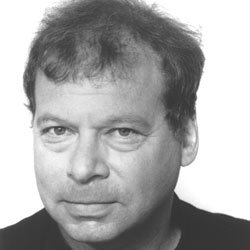They’re off doing what they do
and it is pleasant to be here without them
taking up so much room.
They are safely among their own,
in front of their piles of meat, arguing
about cars and their generals,
and, of course, with the TV going all the while.
One reads that the digestive wind passed by cattle
is many times more destructive to the atmosphere
then all of the aerosol cans combined.
How does one measure such a thing?
The world has been coming to an end
for 5,000 years. If not tomorrow,
surely, one day very soon.
Notes on the Poem
August Kleinzahler's poem "Christmas in Chinatown", from his 2004 Griffin Poetry Prize winning collection "The Strange Hours Travelers Keep", features a feisty voice colliding with and prevailing over a clamorous soundtrack. In two crisp, acerbic stanzas, Kleinzahler manages to have us chuckling with, arguing with, shaking our heads over, but never dismissing his sardonic narrator. If the narrator is spending Christmas in Chinatown, we can figure out who "they" are. The narrator doesn't get into specifics, exactly ... and then does. Is the narrator mocking them with the reference to "safely among their own", or suggesting that the rest are safe because "they" have sequestered themselves? What are "they" safely ensconced with ... or what are the rest safe from? There are the "piles of meat" - for which we can feel the disgust, and about which we'll learn more shortly - the arguments about trivial or infuriating subjects and the cacophony of uninterrupted televised noise. "They" are clearly insufferable, aren't they? The ruminations (OK, yes, pun intended) about cattle, methane and atmospheric destruction are not a non sequitur. The narrator is connecting those thoughts to the piles of meat, surely. But then that assertive stance seems to peter with the following and concluding lines: "The world has been coming to an end for 5,000 years. If not tomorrow, surely, one day very soon." On one hand, the last line suggests the narrator is a ranting, failed Cassandra. On the other, is the narrator having the last, bitter laugh? If so, is at the expense of both "us" (who is never directly mentioned, by the way) and "them"?
